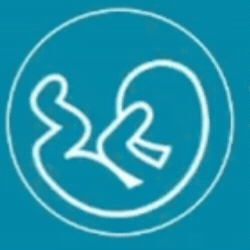Top 10 Essential Questions to Ask Your UAE Maternal-Fetal Medicine Specialist
Choosing the right maternal-fetal medicine specialist in Dubai is crucial for ensuring a healthy pregnancy. To make the most of your consultations, it’s important to come prepared with the right questions. This guide covers the top 10 questions you should ask your UAE specialist to ensure comprehensive prenatal care and informed decision-making.
1. What Prenatal Vitamins Should I Take, and Are There Any Specific Recommendations for My Health Condition?
Prenatal vitamins are crucial for a healthy pregnancy, providing essential nutrients that support both maternal health and fetal development. The most common prenatal vitamins include folic acid, iron, calcium, and DHA. However, if you have specific health conditions such as diabetes or thyroid issues, your specialist might recommend additional supplements or adjusted dosages.
- Folic Acid: Helps prevent neural tube defects.
- Iron: Supports increased blood volume and prevents anemia.
- Calcium: Promotes the development of the baby’s bones and teeth.
- DHA: Supports brain and eye development.
Ask the specialist about the best prenatal vitamins for your specific needs and whether there are any additional supplements you should consider.
2. How Often Should I Schedule Prenatal Visits, and What Can I Expect During Each Visit?
Regular prenatal visits are vital for monitoring your health and the development of your baby. Typically, prenatal visits are scheduled every four weeks during the first 28 weeks of pregnancy, every two weeks from 28 to 36 weeks, and weekly from 36 weeks until delivery.
During these visits, you can expect:
- Routine Check-Ups: Monitoring blood pressure, weight, and fetal heart rate.
- Ultrasounds: To assess fetal development and confirm due dates.
- Screenings: For gestational diabetes, anemia, and other conditions.
- Consultations: Discuss any concerns or symptoms you may have.
Understanding what to expect during each visit helps you prepare and make the most of your appointments.
3. What Prenatal Screenings and Tests Are Recommended, and When Should They Be Done?
Prenatal screenings and tests are essential for detecting potential issues early on. Some common tests include:
- First Trimester Screening: Includes a blood test and nuchal translucency ultrasound to assess the risk of chromosomal abnormalities.
- Second Trimester Ultrasound: Evaluates fetal growth and anatomy.
- Glucose Tolerance Test: Checks for gestational diabetes.
- Group B Streptococcus Test: Screens for bacteria that could affect the baby during delivery.
Ask your specialist about the specific tests recommended for you and their timing based on your medical history and risk factors.
4. What Are the Signs of Potential Complications, and When Should I Contact You?
Recognizing the signs of potential complications can be crucial for timely intervention. Common warning signs include:
- Severe Abdominal Pain: Could indicate a problem such as an ectopic pregnancy or placental abruption.
- Heavy Bleeding: Might signal a miscarriage or placenta previa.
- Severe Headaches or Vision Changes: Could be related to preeclampsia.
- Reduced Fetal Movement: May indicate fetal distress.
Discuss these symptoms with your specialist to understand when and how to seek help promptly.
5. Can You Explain My Birth Plan Options, Including Pain Management and Delivery Methods?
Creating a birth plan involves discussing your preferences for labor and delivery, including:
- Pain Management: Options include epidurals, intravenous pain relief, and natural pain management techniques.
- Delivery Methods: Discuss the benefits and risks of vaginal delivery versus cesarean section (C-section).
- Labor Induction: When and why it might be recommended.
- Support During Labor: Preferences for who will be present and any special requests for the birthing environment.
Discuss these symptoms with your specialist to understand when and how to seek help promptly.
6. What Should I Pack in My Hospital Bag, and When Should I Prepare It?
Preparing for childbirth involves many details, and one important aspect is packing your hospital bag. This article will guide you on what essentials to include and the optimal time to prepare your bag to ensure a smooth delivery experience.
Read more about preparing for an elective C-section in our detailed guide.
1. For You:
- Comfort Items: A favorite pillow, cozy blanket, and socks.
- Post-Surgery Essentials: Compression binder and disposable underwear.
- Clothing and Footwear: Loose long dresses, bathrobe, slippers, and a going-home outfit.
- Personal Items: Mobile phone, charger, toiletries, photo ID, and medical documents.
2. For Your Baby:
- Clothing and Blankets: Receiving blankets, onesies, and a going-home outfit.
- Travel Gear: Baby carrier or car seat.
7. How Can I Manage Common Pregnancy Discomforts Such as Nausea, Back Pain, and Swelling?
Pregnancy discomforts are common but manageable. Here are some tips:
- Nausea: Eat small, frequent meals and avoid strong smells. Ginger or acupressure wristbands may help.
- Back Pain: Use proper posture, wear a supportive belt, and consider prenatal massage or gentle stretching exercises.
- Swelling: Elevate your legs, stay hydrated, and avoid prolonged standing. with your specialist to understand when and how to seek help promptly.
Discuss your symptoms with your specialist for personalized advice and treatment options.
8. What Are the Risks and Benefits of Elective C-Sections Versus Vaginal Delivery?
Elective C-sections and vaginal deliveries have different risks and benefits:
- Elective C-Section: Can be planned and scheduled but involves risks such as longer recovery time, infection, and potential complications in future pregnancies.
- Vaginal Delivery: Generally involves a shorter recovery time and fewer risks for future pregnancies but may have an unpredictable labor process.
Discuss these options with your specialist to determine the best approach for your specific situation.
9. What Should I Know About Postpartum Care and Recovery, Including Mental Health Considerations?
Postpartum care is crucial for your recovery and well-being:
- Physical Recovery: Includes managing pain, healing from any tears or incisions, and resuming normal activities gradually.
- Mental Health: Be aware of signs of postpartum depression or anxiety and seek support if needed.
- Support Systems: Arrange for help from family or friends during the early weeks postpartum.
Understanding postpartum care helps you prepare for a smoother recovery and transition to motherhood.
10. How Can I Ensure a Healthy Lifestyle During Pregnancy, Including Diet, Exercise, and Managing Stress?
Maintaining a healthy lifestyle supports both you and your baby:
-
Diet: Focus on a balanced diet rich in fruits, vegetables, lean proteins, and whole grains.
-
Exercise: Engage in regular, moderate exercise such as walking or swimming, as recommended by your specialist.
-
Stress Management: Practice relaxation techniques, such as deep breathing or prenatal yoga, and seek support when needed.
Consult with your specialist to tailor these recommendations to your individual needs.

At FMGC, we understand the emotional and physical toll of pregnancies. Our team of best obstetrics gynecologists are committed to providing compassionate care and comprehensive support to help you through this blessed time. If you or a loved one is expecting, please reach out to us for expert care and guidance.
Contact Us: Feto Maternal & GenetYX Center Dubai, UAE
Follow Us on Social Media: Facebook: FMGC Facebook
Instagram: FMGC Instagram
LinkedIn: FMGC LinkedIn
Twitter: FMGC Twitter

